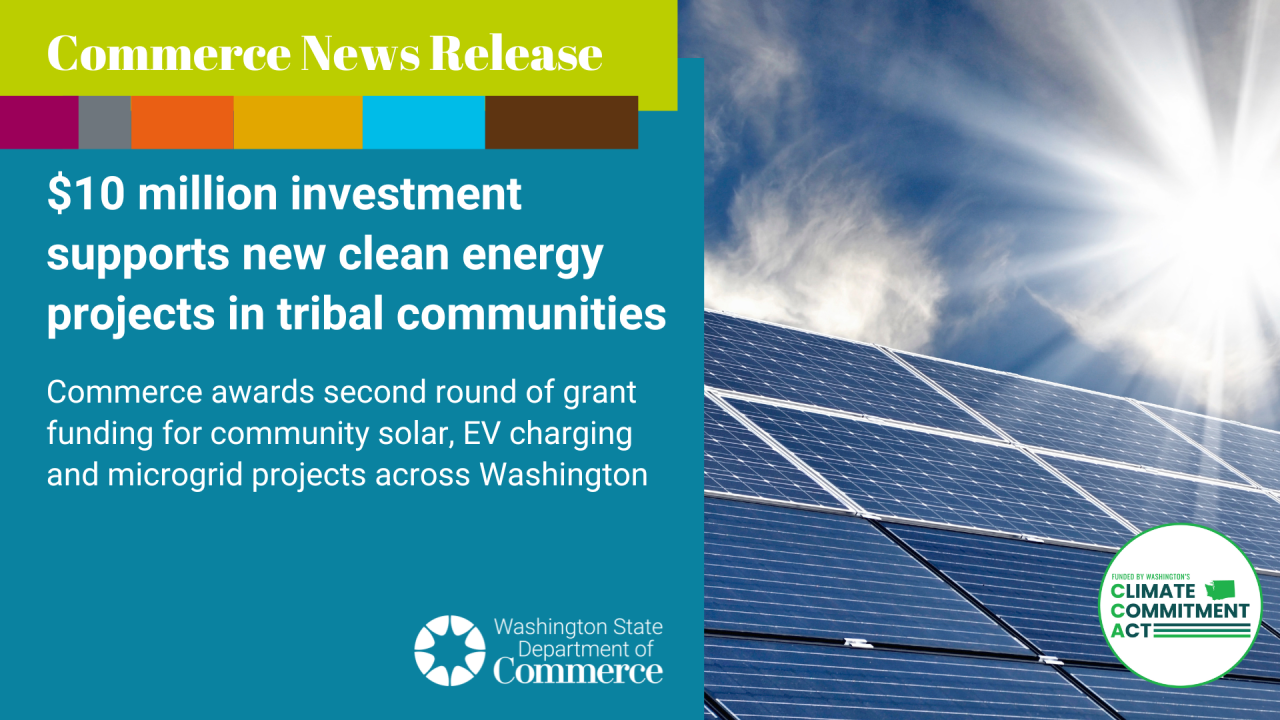
Climate Commitment Act dollars at work: $10 million investment supports new clean energy projects in tribal communities
Washington State Department of Commerce
Our mission is to strengthen communities in Washington.
Commerce awards second round of grant funding for community solar, EV charging and microgrid projects across Washington state
OLYMPIA, WA — The Washington State Department of Commerce today announced more than $10 million in grants for 13 clean energy projects proposed by tribal communities across the state. These clean energy grant awards are part of a new Tribal Clean Energy opportunity funded by Washington’s Climate Commitment Act . ?Commerce has now awarded a total of $17.5 million to support the planning, design and construction of 18 tribal clean energy projects that promote tribal sovereignty, advance community resiliency and contribute to Washington’s decarbonization goals.
“Tribes within Washington state know the impact of climate change and are leaders in protecting this beautiful place we call home. I’m proud of what the Climate Commitment Act is doing, through funding projects like these, to ensure an equitable clean energy future,” said Gov. Jay Inslee.
“Our partnerships with tribal communities continue to grow and strengthen as we transition together into a clean energy future,” said Commerce Director Mike Fong. “Washington’s Climate Commitment Act is helping realize our shared visions for vibrant, resilient communities across the state and a healthier environment for all.”
This is the second round of funding awarded through the Tribal Clean Energy Grant program. The first grants for five projects were announced in May .
领英推荐
Funding still available – applications close Oct. 15
The Tribal Clean Energy Grant program has additional funding available, although this final round is only for proposals involving siting and permitting of clean energy projects. Applications are open until Tuesday, Oct. 15 at noon. An optional online pre-proposal conference to learn more about this funding opportunity is Tuesday, Sept. 24. Advance registration for the Zoom conference is required. More information is on Commerce’s Energy Programs in Communities webpage .
All of the grants are funded by Washington’s Climate Commitment Act (CCA). The CCA supports Washington’s climate action efforts by putting cap-and-invest dollars to work reducing climate pollution, creating jobs, and improving public health. Information about the CCA is available at climate.wa.gov .